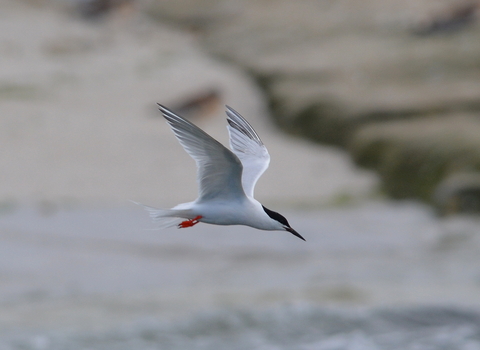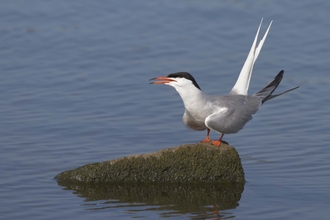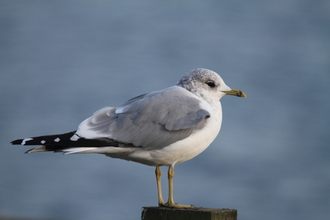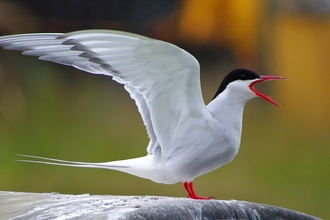
Roseate tern ©Adam Jones
Roseate tern
This elegant tern is named for the rosy flush to its summer plumage. With just one regular nesting colony, it is the rarest breeding seabird in the UK.
Scientific name
Sterna dougalliiWhen to see
May to AugustSpecies information
Category
Statistics
Length: 33-38cmWingspan: 72-80cm
Weight: 95-130g
Average lifespan: 8 years
Conservation status
Classified in the UK as Red under the Birds of Conservation Concern 5: the Red List for Birds (2021). Protected in the UK under the Wildlife and Countryside Act, 1981.
Habitats
About
This medium-sized tern, with its pink-flushed breast and elegant, swallow-like tail streamers, is one of Europe’s rarest seabirds. They nest in colonies, often alongside other terns and black-headed gulls, which helps protect their eggs and chicks from predators. The nest is a shallow scrape on the ground, but they will happily use special nest boxes placed on the floor. A summer visitor, roseate terns are usually the last breeding tern species to return each year, rarely arriving before May.How to identify
The roseate tern is similar in appearance to common and Arctic terns, but with shorter wings and two extremely long tail feathers during the breeding season. In summer plumage, it is a strikingly pale bird, with a black cap, whitish-grey back and wings and white underparts that are tinged pink - in a flock of greyer Arctic and common terns, roseate terns appear to glow white!The bill is longer than in common and Arctic terns, and is all black in spring, with a scarlet-red base developing in summer. The legs are bright red.



